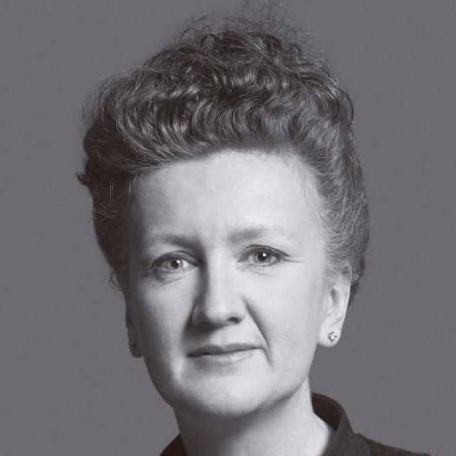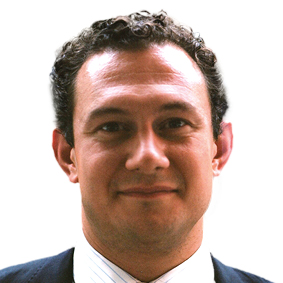As stakeholders demand more, the remit of the Board is growing. NEDs are grappling with everything from climate change to diversity and inclusion. Chairs must make sure their Board is equal to the challenge, and this means looking at how their own role needs to transform too.
Here are their five tips on how to prepare for the future:
1. Think differently about strategy
Over the past two years, many executive teams have been focusing on day-to-day operations and the longer-term view has had to take a back seat; that balance now needs to be reviewed.
Ian Marchant, Chair of Thames Water, explained, “The job and skill of a Chair is knowing when to call those inflection points and say, ‘We now need to look to the future.’”
Boards must also think about strategy in a more agile way.
Irene Dorner, Chair of Taylor Wimpey, said, “Strategy is never going to be the same again. You're not going to write a strategic plan for five years, and then sit down every year and see where you are. It's now going to be a rolling event.”
She described what this looks like for the FTSE 100, British-based housebuilding company. “We’ve decided to boil it down to whatever we think the five big topics are. We then take one of those at a time onto the agenda, on a rolling basis, and have a discussion about it,” she said. “Strategy is no longer static.”
2. Educate yourself widely
There is no doubt that the breadth of the Chair’s remit is growing, and this will mean spending more time upskilling yourself. “There is a broader range of issues that you must be educated in, and you've got to educate the Board in a wider range of issues too,” Irene said.
This doesn’t mean becoming an expert in everything, though.
Samantha Barber, Board Effectiveness & Sustainability Lead for Europe at Accenture, said, “It is about ensuring your business can effectively frame the future, bringing a focus and understanding of the challenges facing [it]. This will provide the right framework for the Board to scrutinise the strategy and the journey ahead.”
She continued: “However, asking all our NEDs to suddenly become specialists in machine learning, circular economy or biodiversity is maybe a stretch too far. We need to equip Board members with the level of fluency that empowers and enables them to feel they can effectively contribute in the boardroom and fulfil their fiduciary responsibilities.”
3. Be ready for increased scrutiny from investors
The pressure from stakeholders on ESG is growing, and Samantha foresees investors, including activists, asking a whole range of questions around key areas, such as carbon emissions, supply chain sustainability and digital adaption.
“There are investor sustainability sceptics, alongside the evangelists, who will exert competing pressures [on] the Board,” she said. “Boards should also expect to be questioned about how decisions are made as much as [about] what decisions have been made.”
This is where having the right governance and information flows in place will be crucial. “The Board must be nimble and have clarity about the key data and information that it needs, so there can be effective and informed decision-making in the boardroom,” Samantha said.
4. Bring insight back to the centre
There’s no question that today’s NEDs need to venture beyond the boardroom to do they their job properly.
Tom Beedham, Director of Board Mentors and NEDs at Criticaleye, said, “Chairs must be a visible presence in the organisation and remain connected to what is going on at the frontline. With employees now one of the most challenging stakeholders for Boards, that means getting out of the boardroom and talking to their people."
Irene explained how she builds rapport with people beyond the non-execs. “To get under the skin of what's really going on with the business, I create a relationship with the level-down from the CEO, so they feel that they can ring you up,” she said.
She advocates asking questions, such as: What do you think we could do? and What extra information can you give me? “This is all about relationships, and a good CEO should see it as supportive,” Irene said.
Tom acknowledged that this works best when there is trust at the top: “The Chair needs to be out in the business, but they need to do this without intruding on the role of the CEO. It can be a tricky balance to strike but is essential, particularly as workplace and travel restrictions are relaxed.”
Irene acknowledged the challenge. “I would always make sure that the CEO was aware, and I would always bring stuff back to the centre, so that everybody knew what was going on,” she said.
5. Encourage diversity of debate
Ultimately, the Chair must ensure the Board can make robust decisions. This requires a diverse range of voices around the top table. Ian said, “When you’re building a Board, you’re not only looking for technical capabilities, such as a digital person, an engineering person or someone to chair the Audit Committee, you’ve also got to think about diversity of thinking and questioning styles.”
Although Boards require people who are ‘conversation-starters’, Ian believes that other cognitive and influencing styles are important too. “You really do need the reflective person who sits quietly. You know that they will ask the killer question that the rest of you have missed.”
That mix helps overcome groupthink. “At the end of the discussion, everybody has to think that the debate, and the decisions that were taken, were better than they could have made on their own because the wisdom of the crowd emerged,” he said.



